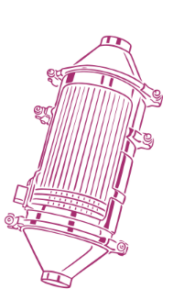(R)EVOLUTION - Particulate filters – Controlling diesel engine emissions
Particulate filters – Controlling diesel engine emissions
In the mid-1980s, the automotive industry faced an unprecedented challenge: how to reconcile the energy efficiency of diesel engines with the need to reduce their environmental impact? It was in this context that Mercedes-Benz experimented in 1985 with the very first particulate filter installed on a production vehicle. The initiative marked a major turning point in the fight against combustion-related pollution.
The principle behind the device was as simple as it was innovative: to capture the fine particles emitted by exhaust gases before they were released into the air. These invisible but harmful residues were one of the main criticisms levelled at diesel. Thanks to the filter, they were trapped in a porous structure that retained the soot without affecting the overall functioning of the engine. For motorists, the use remains the same, but the impact on the environment is considerably reduced.
Over the years, the technology has been perfected. The first prototypes, which were sometimes bulky and had a limited lifespan, have given way to more compact and robust filters that are better integrated into modern engines. One of the most decisive advances was the development of thermal regeneration: by reaching a sufficiently high temperature, the filter is able to automatically burn off accumulated residues, thus regaining its full efficiency without external intervention. This process not only ensures greater durability, but also simpler and more transparent use for drivers.
The particulate filter quickly became an essential piece of equipment. Initially reserved for certain models, it gradually became mandatory in Europe and many other markets, in line with changing environmental regulations. Today, it is fitted to almost all diesel vehicles, helping to significantly reduce pollutant emissions while maintaining the performance and range that are the strengths of this type of engine.
The history of the particulate filter illustrates how the automotive industry has adapted to growing environmental challenges. What was originally a pioneering experiment has become a global technological standard in just a few decades, demonstrating that performance and environmental responsibility can go hand in hand.



